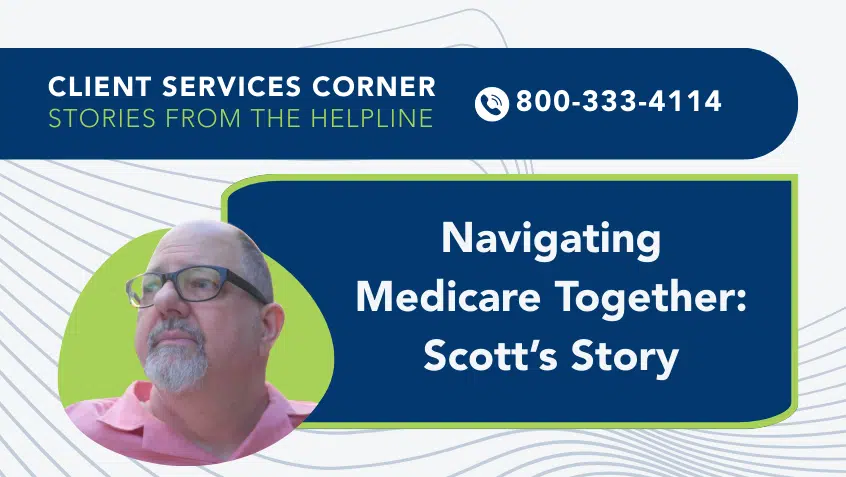Join Us Live for a Discussion on Medicare, Democracy, and the Future of Health Care
Medicare Rights Joins Calls for Increased Funding for Home and Community-Based Services

Last week, Medicare Rights joined hundreds of national, state, and local organizations in a letter urging the U.S. Senate to include robust investments in Medicaid Home and Community-Based Services (HCBS) in the next legislative package. Last year, the U.S. House of Representatives passed a bill that would invest $150 billion in HCBS, and the letter encourages the Senate to pass the same provisions.
HCBS helps people live safely in their homes and communities. Covered services can include assistance with daily activities, like eating and personal care, as well as help getting out into the community, grocery shopping, and other essential tasks.
In recent years, states have begun spending more on HCBS than institutional care. According to the Kaiser Family Foundation’s report on HCBS enrollment and spending: “Factors contributing to this trend include beneficiary preferences for HCBS, the fact that states are encouraging HCBS as an alternative to typically more costly institutional care, and states’ community integration obligations under the Americans with Disabilities Act and the Supreme Court’s Olmstead decision. In Olmstead, the Supreme Court held that the unjustified institutionalization of people with disabilities is illegal discrimination and violates the Americans with Disabilities Act.” But while HCBS is popular and preferred by recipients, it is also optional for states while institutional care is a mandatory part of Medicaid; this can lead to waiting lists for HCBS.
Investment in HCBS is long overdue and vital to provide greater sustainability for states, individuals who rely on HCBS, their family caregivers, and the paid workforce providing these critical services.
At Medicare Rights, we know that increasing HCBS investments would improve the lives of beneficiaries and those of the people who provide in-home care, both paid and unpaid, increasing the financial security, quality of life, and well-being of those within the system. And it would have positive effects on the Medicare program as well, keeping beneficiaries out of hospitals, the emergency room, and nursing facilities.
We continue to urge Congress to pass legislation that invests in HCBS, expands access to dental, vision, and hearing services, and reduces the cost of prescription medicines. It is not too late to take these steps to increase access to high-quality, affordable care and improve the lives of older adults, people with disabilities, and their families.
Read more about HCBS and Medicare.
Read a report about the financial impact of increased HCBS funding.
Show Comments
We welcome thoughtful, respectful discussion on our website. To maintain a safe and constructive environment, comments that include profanity or violent, threatening language will be hidden. We may ban commentors who repeatedly cross these guidelines.
Help Us Protect & Strengthen Medicare
Donate today and make a lasting impact
More than 67 million people rely on Medicare—but many still face barriers to the care they need. With your support, we provide free, unbiased help to people navigating Medicare and work across the country with federal and state advocates to protect Medicare’s future and address the needs of those it serves.
The Latest
Most Read
Add Medicare to Your Inbox
Sign up to receive Medicare news, policy developments, and other useful updates from the Medicare Rights.
View this profile on InstagramMedicare Rights Center (@medicarerights) • Instagram photos and videos









